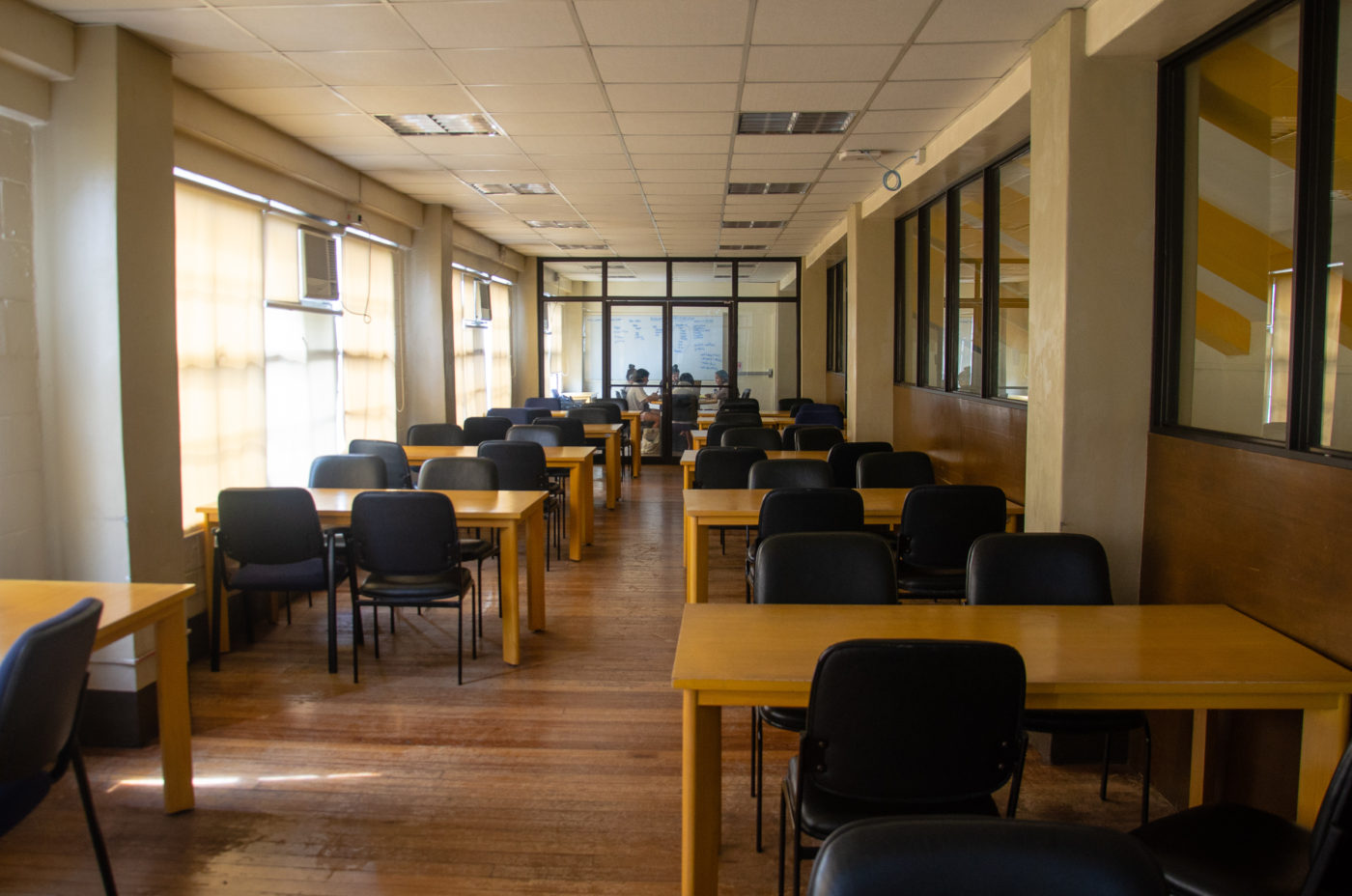AN INDELIBLE aspect of life as an Atenean athlete will always be the long hours spent at the Athlete’s Study Hall. Located on the third floor of Blue Eagle Gym, the study hall means something different to every single athlete within its walls. To some, the study hall means free printing and a refuge from the heat; to others, the room is a place that keeps one cooped up against their will.
On the other hand, University Athletics Office (UAO) Director Emmanuel Fernandez sees study hall as an opportunity to holistically form every Atenean athlete. “We just want to provide our athletes with access to more tools that, hopefully, they can use to study well, and get better grades,” he says.
Atenean athletes are required to spend a number of hours per week at the study hall. However, even with advisors available to guide them, many athletes have complained of unproductivity and restlessness at study hall. As a result, the long hours, which could be better used for resting, socializing, or being more productive elsewhere, become just another tedious requirement.
The policy
To be eligible for competitions, student-athletes are required by the University Athletic Association of the Philippines (UAAP) to complete at least 12 units per semester, but Ateneo sets an additional Quality Point Index (QPI) requirement of 1.8 for freshmen, 1.9 for sophomores, and 2.0 for juniors and seniors. Patterned after the practices of the United States’ National Collegiate Athletic Association, the study hall was established to help Atenean athletes meet the general standards while going beyond simply getting by.
A core part of the policy is logging required study hours. First-year student-athletes need to log eight hours a week. From their second year onwards, it becomes four hours, unless an athlete’s QPI is below 2.5. Then, the required hours return to eight per week. Conversely, if an athlete’s QPI exceeds 3.0, he is no longer required to log study hall hours.
The last rule has become an unspoken incentive for athletes to excel in their classes and the end result of a good QPI generally achieves the study hall’s goals, albeit for less than ideal reasons. Logging hours essentially devolves into a chore done to avoid taking on even more hours.
To each his own
Whether or not this policy guarantees an athlete academic stability is yet to be proven. One may argue that forcing these requirements upon our athletes may even be counterproductive. Spending extra hours in a room every week won’t do much for a student if he has poor study habits or if he does not attend class on a regular basis. How long the room is used becomes irrelevant if it’s not being used well.
That said, the study hall simply serves as a stopgap solution to facilitate the academic progress of our athletes, instead of instilling skills like time management and organization, which can be learned in other ways.
As with any sport, academic success comes with putting in the hours, but at the end of the day, the school can’t learn for its athletes. Be it in a coffee shop, in a condominium, or on the way to class, the work, with or without the study hall, purely rests in the hands of our athletes.







